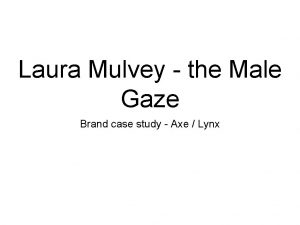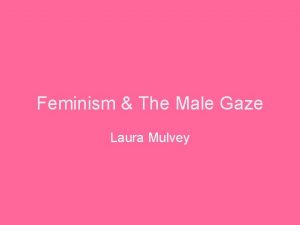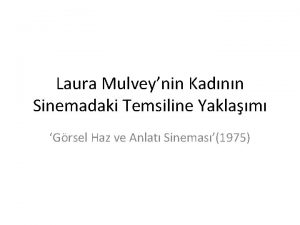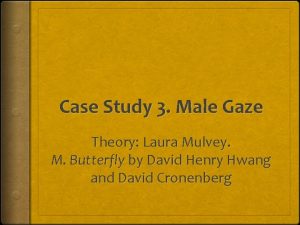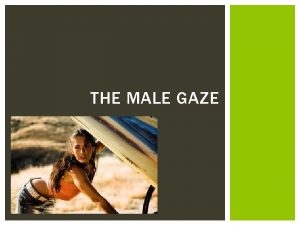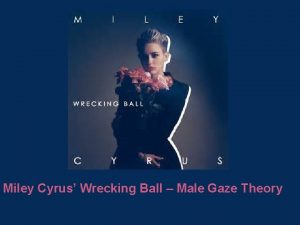Case Study 3 Male Gaze Theory Laura Mulvey








- Slides: 8

Case Study 3. Male Gaze Theory: Laura Mulvey. M. Butterfly by David Henry Hwang and David Cronenberg

Gaze: the concept The term introduced by Jacques Lacan: A person loses in his or her autonomy due to the awareness of being watched and therefore becoming an object. The relationship of “gaze” and “being gazed at” = the dynamics of power (ex. , surveillance). “Medical gaze, ” a term by Michel Foucault: a dehumanizing objectification of the patient from the doctor’s position of power.

Male Gaze The term coined by Laura Mulvey in her essay "Visual Pleasure and Narrative Cinema” (1975). Refers to power assymetry: heterosexual patriarchal male’s gaze at a woman in visual arts (men behind the camera; men as intended audience; interaction of male characters). Objectification and sexualization of women.

“Male” West, “Female” East: Power Dynamic Imperial gaze: establishing power of the colonizer over the colonized; akin to orientalism. The “East” is seen as sensual, irrational, submissive, traditional – stereotypically female traits. The “West” is seen as rational, proactive, dynamic, innovative – stereotypically male.

Effeminization of the East: Western perspective Benjamin Constant, The Pink Flamingo (1876) Fabio Fabbi, Girls of the Harem

Lalla Essaydi (b. 1956) responds to the imperial/male gaze

An artistic response to the imperial/male gaze M. Butterfly, a 1988 play by David Henry Hwang and a film by David Cronenberg (1993). Plays with Puccini’s Madama Butterfly clichés. Challenges orientalist stereotypes and ignorance. Challenges gender stereotypes and power dynamics.

Translation of the excerpt from the Russian production of M. Butterfly (Song Liling and The Interrogator) - He met the woman of his dreams. How could he doubt that she was a woman? Besides, I am Asian, that is, not completely male. - Your theory is phony! - Really? Then why the West, when dealing with the East, is always fooled? - Enough of that! Answer my question! Did he conjecture that you were a man or not? - I have never asked him that.
